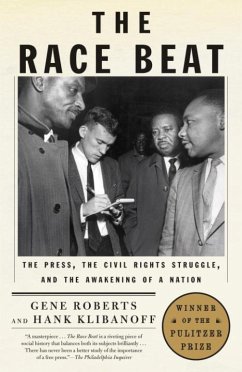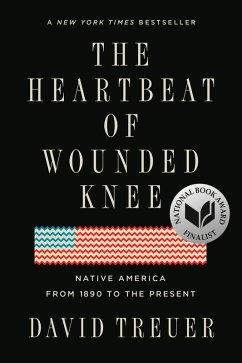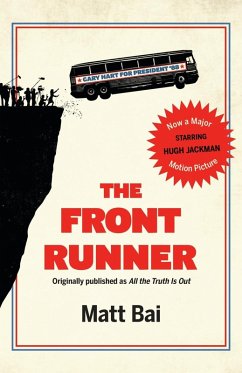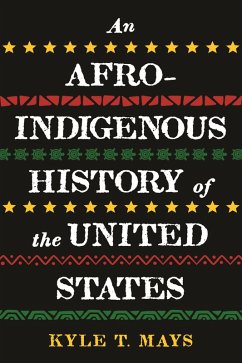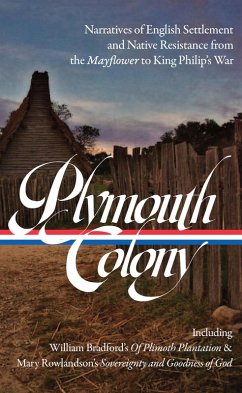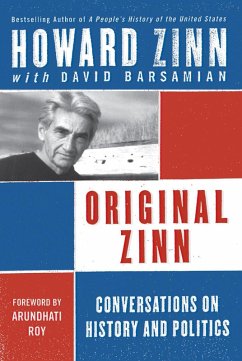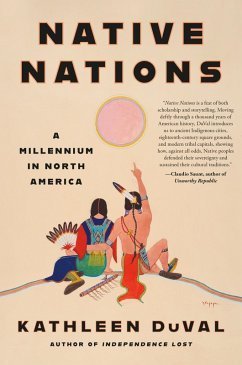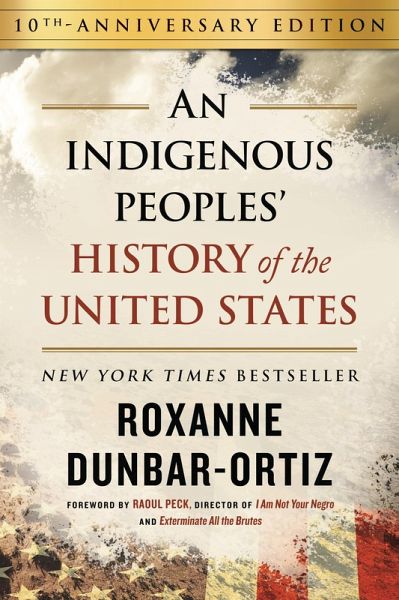
An Indigenous Peoples' History of the United States (eBook, ePUB)
Versandkostenfrei!
Sofort per Download lieferbar
7,99 €
inkl. MwSt.
Weitere Ausgaben:

PAYBACK Punkte
4 °P sammeln!
New York Times Bestseller This American Book Award winning title about Native American struggle and resistance radically reframes more than 400 years of US history A New York Times Bestseller and the basis for the HBO docu-series Exterminate All the Brutes, directed by Raoul Peck, this 10th anniversary edition of An Indigenous Peoples' History of the United States includes both a new foreword by Peck and a new introduction by Roxanne Dunbar-Ortiz. Unflinchingly honest about the brutality of this nation's founding and its legacy of settler-colonialism and genocide, the impact of Roxanne Dunbar-...
New York Times Bestseller This American Book Award winning title about Native American struggle and resistance radically reframes more than 400 years of US history A New York Times Bestseller and the basis for the HBO docu-series Exterminate All the Brutes, directed by Raoul Peck, this 10th anniversary edition of An Indigenous Peoples' History of the United States includes both a new foreword by Peck and a new introduction by Roxanne Dunbar-Ortiz. Unflinchingly honest about the brutality of this nation's founding and its legacy of settler-colonialism and genocide, the impact of Roxanne Dunbar-Ortiz's 2014 book is profound. This classic is revisited with new material that takes an incisive look at the post-Obama era from the war in Afghanistan to Charlottesville's white supremacy-fueled rallies, and from the onset of the pandemic to the election of President Biden. Writing from the perspective of the peoples displaced by Europeans and their white descendants, she centers Indigenous voices over the course of four centuries, tracing their perseverance against policies intended to obliterate them. Today in the United States, there are more than five hundred federally recognized Indigenous nations comprising nearly three million people, descendants of the fifteen million Native people who once inhabited this land. The centuries-long genocidal program of the US settler-colonial regimen has largely been omitted from history. With a new foreword from Raoul Peck and a new introduction from Dunbar Ortiz, this classic bottom-up peoples' history explodes the silences that have haunted our national narrative. Big Concept Myths That America's founding was a revolution against colonial powers in pursuit of freedom from tyranny That Native people were passive, didn't resist and no longer exist That the US is a "nation of immigrants" as opposed to having a racist settler colonial history
Dieser Download kann aus rechtlichen Gründen nur mit Rechnungsadresse in A, B, BG, CY, CZ, D, DK, EW, E, FIN, F, GR, HR, H, IRL, I, LT, L, LR, M, NL, PL, P, R, S, SLO, SK ausgeliefert werden.




